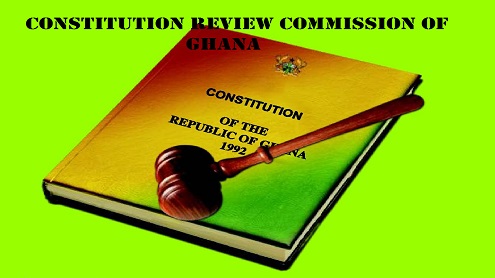The Chairman of the Constitution Review Commission (CRIC), Professor Emmanuel V.O Dankwa has announced that Ghanaians would very soon be called upon to decide in a referendum on the three critical reviews of portions of the 1992 constitution.
The three critical of the 1992 constitution includes abolition of the death penalty, declaration of war by the President and a President being sworn into office before parliament by the Chief Justice.
Professor Dankwa made this known at the first regional stakeholder briefing of the CRIC on the recommendations for amendments of the constitution at Koforidua.
These three issues are among the entrenched clauses of the constitution that, the Constitution Review Implementation Committee (CRIC) have pencilled out for amendment, after consultations with stakeholders following the submission of inputs from the public to the Constitution Review Commission (CRC).
The proposed amendments is to replace the death penalty with life imprisonment, declaration of war by the President to be subjected to parliamentary approval within 72 hours with two-thirds majority endorsing and the President under certain circumstances to be sworn-in anywhere not before parliament but by a high court judge.
Indications are that, the referendum would be held alongside the local and district assembly elections to cut down cost and at least 40 percent of the total voting population is expected to take part out of which 75 percent votes would validate a particular position.
Other recommendations for amendment under the entrenched clauses are that the Prerogative of Mercy in offences such as high treason, armed robbery, murder and narcotic related offences would no longer be a reserve for the President but be determined by an independent committee to reduce favouritism and abuse of that power on the part of the President.
Again moving the right to vote from the entrenched to non-entrenched provision of the constitution to allow parliament to decide on the voting age and amendments to the women’s right to enable parliament enact law to back the affirmative action bill.
Professor Dankwa said whiles recommendations on the entrenched constitutional provisions or clauses required a referendum where the general public would have a say , those made under the non-entrenched clauses only required representatives of the people in parliament to endorse.
Explaining reasons underlining the call for amendment, Professor Dankwa explained that, for instance, the swearing –in of the President before parliament did not make room for emergency situations and therefore if Ghanaians agreed through a referendum, ‘that entrenched clause would be amended to provide that a president could be sworn- in anywhere in the country by a high court judge and not before parliament in times of emergency.
Professor Dankwa used the death of President Mills as a clear example where parliament had to be recalled later in the day before a new president was sworn in explaining that the current proposal sought to bridge that gap by making it flexible for the next president under such emergency circumstance to be sworn in anywhere.
He said the CRC received a total of 83,161 data on review recommendations from the public aside those that were not formally presented but through social media and emphasized that, the review was to strengthen the constitution to be practicable and urged the public to go out in their numbers and vote during the referendum.
Other members of the Committee including Dr Gheskiya Agambilla and Mrs Estelle Appiah gave submissions of the non-entrenched and entrenched amendments respectively.
However, participants at the forum raised concerns about certain aspects of the review such as the abolition of the death penalty and the declaration of war arguing that the abolition of the death penalty could lead to an increase in armed robbery.
Deputy Commissioner of Police (DCOP) Akuribah Yaagy, the Eastern Regional Police Commander, observed that, with the current trends in crime, especially armed robbery that involving murder, the death penalty should be maintained citing the US who just days ago executed two people convicted for murder.
He said even though the law had been there, for the past 20 years, no President had given the assent to any execution and so could be maintained that way to put fear in people to desist from high level crimes such as murder.
Source: GNA


